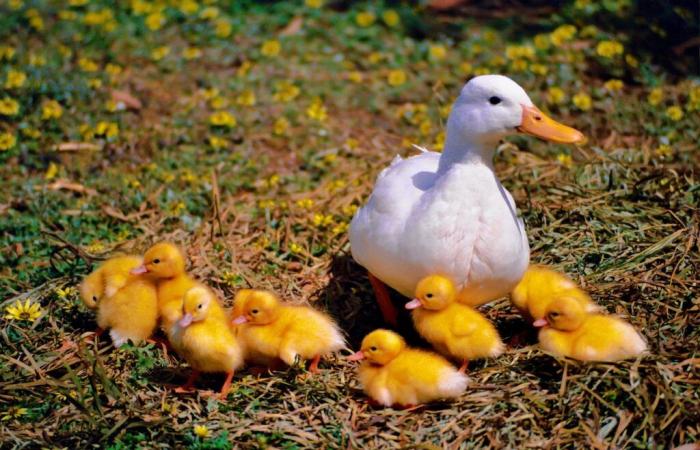A second outbreak of the disease was detected in a duck farm in Landes. These animals had been vaccinated against HPAI, in accordance with regulations. To prevent the spread of the virus, a euthanasia operation for the 6,000 animals present on the farm was implemented on November 14.
A second outbreak of highly pathogenic avian influenza (HPAI) has been confirmed in a duck farm located in the Landes. These animals, although vaccinated in accordance with regulations, were affected by the virus. In response, a euthanasia operation for the 6,000 ducks on the farm has been carried out since November 14, with the support of state services.
Rapid and coordinated measures
The Departmental Directorate of Employment, Labor, Solidarity and Population Protection (DDETSPP) is mobilized to support the breeder and coordinate depopulation operations. An epidemiological investigation was opened to identify possible links between this second outbreak and the first detected at the beginning of November.
The prefectural decree of November 7, establishing a regulated perimeter around the first outbreak, remains in force. It defines two zones:
- A protection zone within a radius of 3 km, including 8 Landes municipalities.
- A surveillance zone within a radius of 10 km, covering 20 municipalities.
In these areas, strict restrictions apply, including a ban on poultry movements and the obligation for reinforced self-checks.
Epizootic risk at its maximum
Since November 9, the level of epizootic risk has been raised to its maximum in mainland France, due to increased circulation of the virus among wildlife, particularly migratory wildlife. This situation justifies the increased vigilance and reinforced biosecurity measures imposed on breeders, poultry keepers and even individuals.
Vaccination, a tool reinforced by biosecurity measures
If the vaccination system deployed since October 2023 constitutes an important barrier against the spread of the virus, the prefect of Landes recalls that its effectiveness also relies on strict compliance with biosecurity measures. These aim to limit the risks of contamination from wildlife and during human activities.
No risk for human consumption
The prefect wishes to reassure consumers: poultry meat, foie gras, eggs and all derived products are safe for human health.
Municipalities affected by regulated zones
Protection zone (ZP):
Orist, Pey, Port-de-Lanne, Saint-Étienne-d'Orthe, Saint-Jean-de-Marsacq, Saint-Lon-les-Mines, Sainte-Marie-de-Gosse, Saint-Martin-de-Hinx.
Surveillance zone (ZS):
Bélus, Biarrotte, Biaudos, Cagnotte, Cauneille, Hastingues, Heugas, Josse, Oeyregave, Orthevielle, Peyrehorade, Rivière-Saas-et-Gourby, Saint-André-de-Seignanx, Saint-Geours-de-Maremne, Saint-Laurent- de-Gosse, Saint-Vincent-de-Tyrosse, Saubrigues, Saubusse, Siest, Tercis-les-Bains.
For more information, professionals and individuals can consult the instructions available on the Ministry of Agriculture website:
Biosecurity measures.






